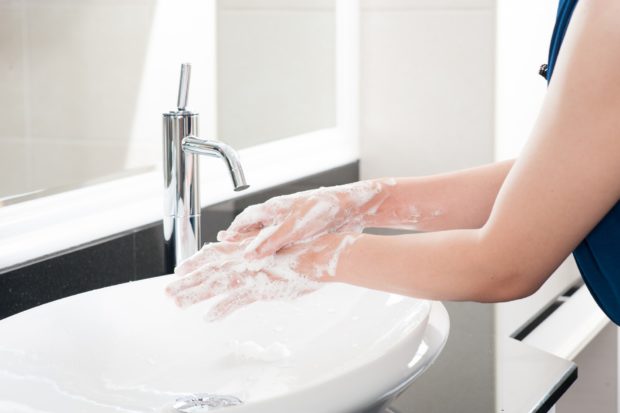
Image: bee32/IStock.com via AFP Relaxnews
There are many myths swirling around on the internet at the moment about COVID-19, more commonly known as the coronavirus. To ensure that we all stay informed with accurate information, the World Health Organization (WHO) has put together a “myth busters” page, highlighting the truth about some of the most popular misconceptions out there.
Here we summarize a few of the most worrying myths on the page, but make sure you also head to the WHO’s own page for more information.
COVID-19 virus can only be transmitted in areas with certain weathers and temperatures
The COVID-19 virus can be transmitted in all areas around the world. This includes areas with hot and humid weather, and no, cold weather and snow cannot kill the new coronavirus. The WHO says the most effective way to protect yourself against the new coronavirus is by “frequently cleaning your hands with alcohol-based hand rub or washing them with soap and water.”
Can eating garlic help prevent infection with the new coronavirus?
Although garlic is a healthy food that can bring health benefits as part of a balanced diet, there is no evidence that it can protect against the coronavirus.
Can taking antibiotics protect against the coronavirus?
No, COVID-19 is a virus, and antibiotics do not work against viruses, only against bacteria. So far there are no specific medications recommended to prevent or treat the new coronavirus. However, if you are infected with the virus and need hospital attention, you should receive the care needed to relieve and treat symptoms.
Can spraying alcohol or chlorine all over your body kill the new coronavirus?
No, this will not kill viruses that have already entered your body, and in fact, spraying alcohol or chlorine all over your body can damage mucous membranes in areas such as the eyes and mouth. Stick to using them to disinfect surfaces.
Can the new coronavirus be transmitted through mosquito bites?
No, there is no evidence to suggest that it can be transmitted by mosquitoes. However, it is spread through droplets produced when an infected person coughs or sneezes, so wash your hands frequently with soap and water (or use an alcohol gel if you cannot wash them) and avoid touching your face.
Does taking a hot bath prevent the new coronavirus disease?
No. Your normal body temperature remains around 36.5 degrees Celsius to 37 degrees Celsius, regardless of the temperature of your bath or shower. Again, the WHO stresses that the best way to protect yourself against COVID-19 is by frequently washing your hands to kill viruses and avoiding touching your eyes, mouth, and nose. CL/JB
RELATED STORIES:
How some hotels are using technology to mitigate Covid-19
Feeling grateful doesn’t help with depression or anxiety, says new study